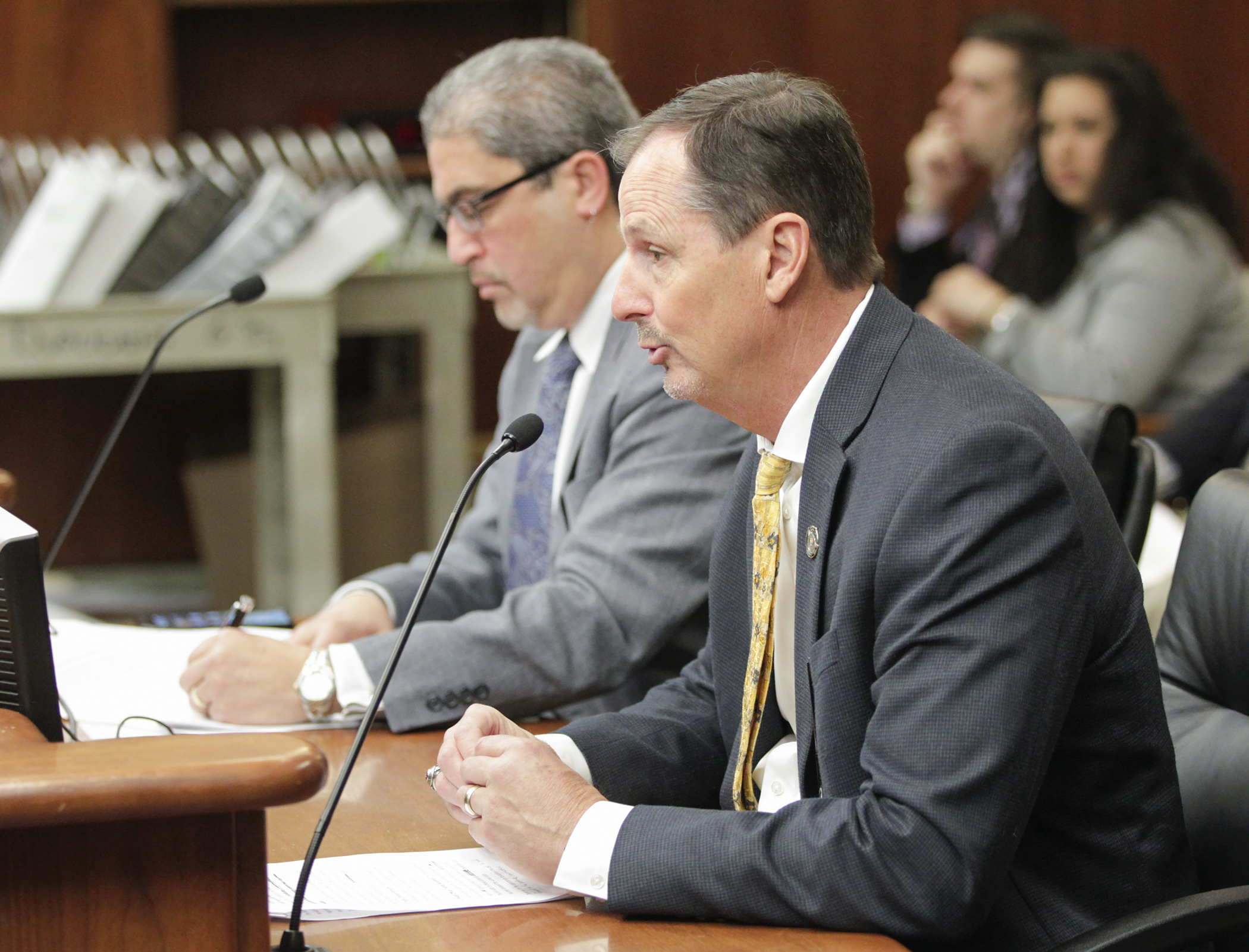Cash for training proposed if cop complaints reported

The Peace Officer Standards and Training Board establishes law enforcement licensing and training requirements for peace officers in the state, and uses a portion of its budget to partially reimburse local governments’ expenses for that required training.
More money could be forthcoming, but with conditions.
Sponsored by Rep. Carlos Mariani (DFL-St. Paul), HF2709 would appropriate $12 million during the upcoming biennium for the POST Board, if state law enforcement agencies report complaints lodged against their peace officers to the board each year.
The data collection by law enforcement agencies “would measure the effectiveness of the training that we are spending a lot of money on,” Mariani said.
The bill was approved, as amended, by the House Judiciary Finance and Civil Law Division Thursday and sent to the House Ways and Means Committee. There is no Senate companion.
Mariani made it clear complaints to be reported would be limited to five major matters:
- public reported misconduct;
- excessive force;
- the integrity or truthfulness of an officer;
- violations of the law; and
- sexual misconduct or harassment.
Reports to the POST Board would need to contain information identifying by name the officers receiving complaints, which the board would classify as private data. But the bill would also mandate the public release of summary data on those complaints.
Rep. Brian Johnson (R-Cambridge) said making such summaries public, even without the names of officers attached, could be problematic if it also includes information on where the complaints originated.
He noted that many police departments employ fewer than 10 officers. In such cases, he said, it would be fairly easy for someone to figure out the name of an officer.
“I think we need to take a closer look at protecting this data,” he said, noting unintended release of private data on officers would be “very dangerous” both to law enforcement and the public.
Testifiers representing law enforcement spoke against portions of the bill, including one that would extend the $6 million annual base funding through the 2022-23 biennium before ending.
Bill Hutton, executive director of the Minnesota Sheriffs’ Association, noted that when those reimbursement funds run out, law enforcement agencies would face “unfunded mandates,” with most local governments being unable to pay for the peace officer training required by the POST Board.
Related Articles
Search Session Daily
Advanced Search OptionsPriority Dailies
Ways and Means Committee OKs proposed $512 million supplemental budget on party-line vote
By Mike Cook Meeting more needs or fiscal irresponsibility is one way to sum up the differences among the two parties on a supplemental spending package a year after a $72 billion state budg...
Meeting more needs or fiscal irresponsibility is one way to sum up the differences among the two parties on a supplemental spending package a year after a $72 billion state budg...
Minnesota’s projected budget surplus balloons to $3.7 billion, but fiscal pressure still looms
By Rob Hubbard Just as Minnesota has experienced a warmer winter than usual, so has the state’s budget outlook warmed over the past few months.
On Thursday, Minnesota Management and Budget...
Just as Minnesota has experienced a warmer winter than usual, so has the state’s budget outlook warmed over the past few months.
On Thursday, Minnesota Management and Budget...